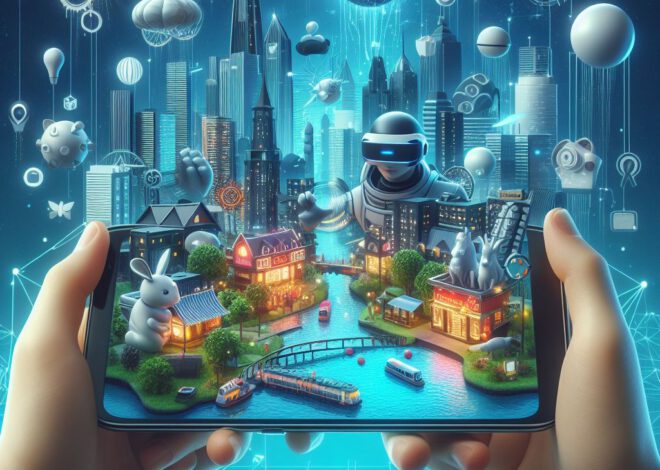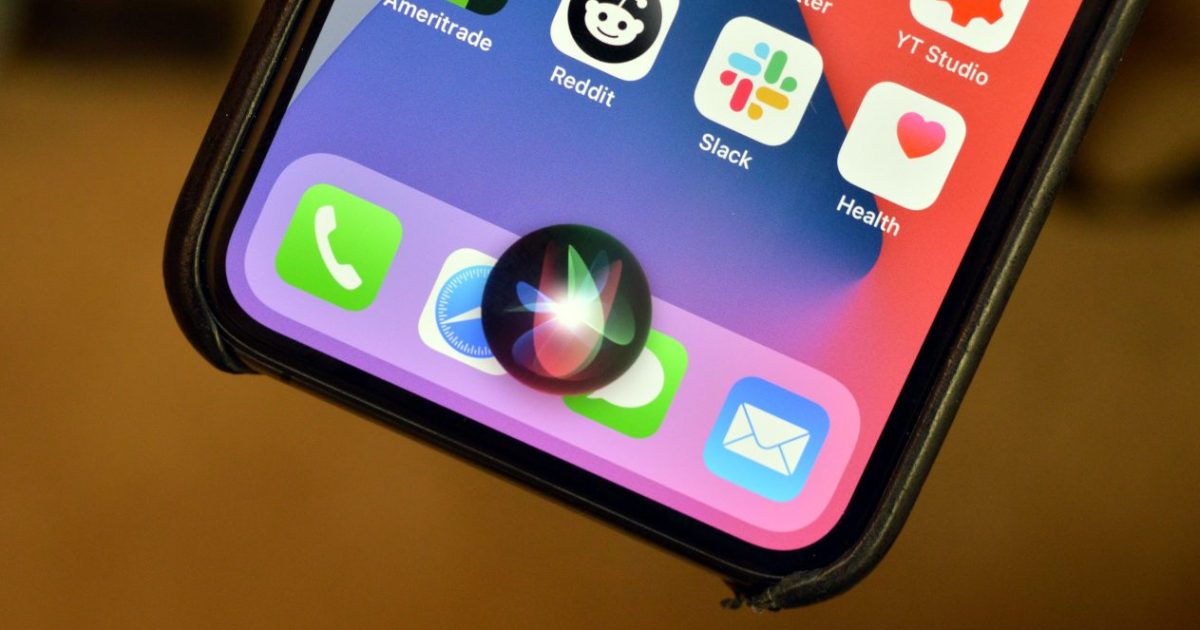
Apple didn’t make Siri a ChatGPT killer at WWDC — and that’s bad
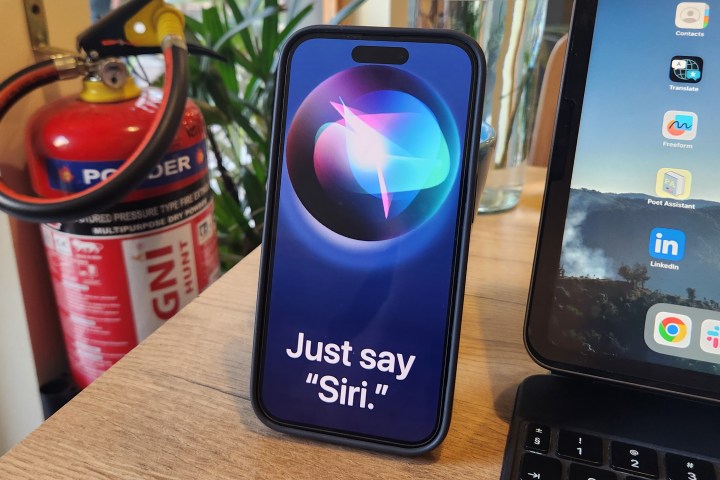 Nadeem Sarwar / Digital Trends
Nadeem Sarwar / Digital Trends
Apple entered a new era at WWDC 2023 with the introduction of its Vision Pro mixed reality headset. Some are calling it the next iPhone moment. And yet, Siri — an iconic iPhone innovation that wowed the world in the early days of Apple’s smartphones before being eclipsed by Alexa and Google Assistant — barely left a mark at a conference that was otherwise brimming with ambitious announcements.
Apple barely gave Siri an opportunity to shine, unlike how Google and Microsoft have gone about hawking their AI thingamajigs in the past few months. With the arrival of iOS 17 and iPadOS 17, the only two changes making their way to Siri are a shorter activation command and conversational capabilities.
Instead of saying, “Hey, Siri,” users can now just utter the assistant’s name without any ”hello” or “hey,” and the AI assistant will do its job. Next, we got conversational capabilities, which means you can talk to Siri and shoot multiple voice prompts its way without having to say “Siri” or “Hey Siri” at the beginning of every follow-up request.
It’s puzzling that an AI assistant — one that lives on over a billion phones, tablets, and smartwatches — hasn’t cracked the code for flowing conversations.
Siri is a lazy sitting duck in the AI race
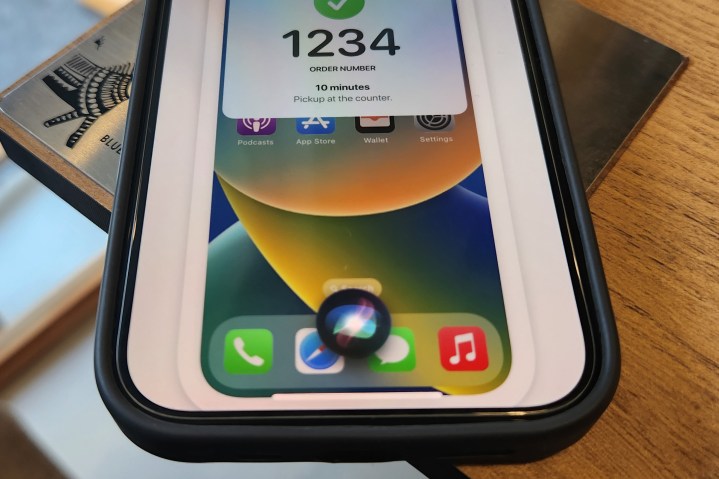 Nadeem Sarwar / Digital Trends
Nadeem Sarwar / Digital Trends
Chopping off a “hey” or making Siri sound less robotic isn’t the kind of groundbreaking upgrade that Siri deserves. Certainly not in 2023, when AI chatbots fueled by Open AI’s GPT-4 or Google’s LaMDA natural language models are trying to reimagine everything from web searches and writing research papers to acting as virtual partners that soothe your anxiety or loneliness.
At this point in time, Siri has become almost a laughingstock in the voice assistant arena. What’s even more disappointing is the fact that Siri offers arguably the most impressive task automation suite if you know your way around Apple’s Shortcuts app. Alas, Apple won’t take the next logical step and bake Siri in at the heart of its own apps such as Notes or Safari.
Take, for example, Bing Chat. It started off standalone, then made its way to the Edge browser, and now lives in the Windows 11 search bar at the OS level. Of course, it’s also supercharging Office tools like Word, Excel, and PowerPoint, among others. Likewise, Google Bard is appearing inside Workspace products like Gmail, Docs, and Slides. Siri, meanwhile, is nowhere to be seen across Apple’s own applications.
Yes, Apple doesn’t offer a productivity toolkit as fleshed-out and feature-heavy as Google’s or Microsoft’s. But it still has to start somewhere. The greenest pasture for that Siri revolution? The vaunted iMessage.
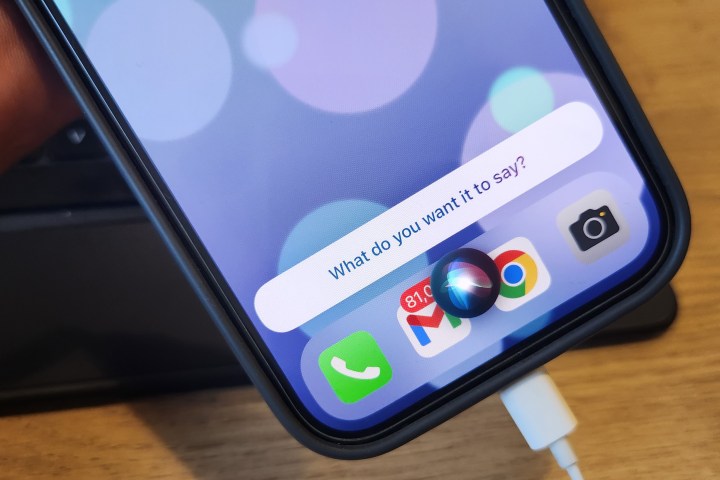 Nadeem Sarwar / Digital Trends
Nadeem Sarwar / Digital Trends
Despite Google spending millions on Rich Communication Services (RCS) and stirring an online wave that has many people begging Apple for RCS adoption, Apple is far too proud — and protective — of the “blue bubble” privilege to ever allow cross-platform messaging harmony.
It’s almost comical that on the same day as WWDC, Google announced that smart compose — a feature that stays ahead of you with smart suggestions as you type a message — is coming to Google Chat. This feature is already available in Gmail and Google Docs, two of the world’s most widely used apps of their kind.
Plus, the AI-assisted predictive language trick has been available in Google Messages via Gboard since 2020. A few weeks ago, Microsoft put the entire experience right inside its SwiftKey mobile keyboard, for both Android and iOS.
A whole world of possibilities
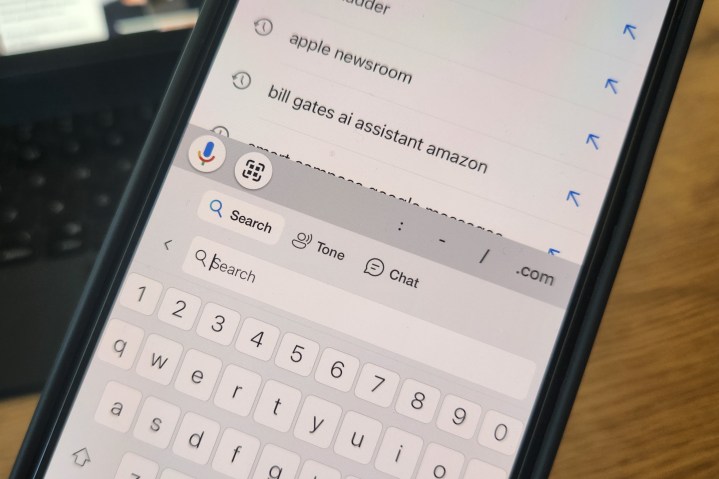 Microsoft puts Bing Chat right inside the SwiftKey keyboard app, which runs fine on the iPhone. Nadeem Sarwar / Digital Trends
Microsoft puts Bing Chat right inside the SwiftKey keyboard app, which runs fine on the iPhone. Nadeem Sarwar / Digital Trends
It would be amazing if Apple could do something similar with Siri. For example, let it read the conversation contextually and present you with a few suggestions. There are already apps like Paragraph AI out there that will do just that for you, and with impressive finesse.
Maybe, Siri can analyze your Mail app and present you with a summarized version of your inbox. There’s an excellent app called Shortwave that does that for you. I absolutely love it. Maybe, just like the AI-powered Microsoft Teams, Siri could one day automatically transcribe your video calls and also present a concise version for you to quickly catch up in the Phone app.
What if something like Bing Chat and its text-to-photo AI image generator could one day come to an Apple app with a helping hand from Siri? The best way to put those tricks to use would be Apple’s excellent Freeform collaboration app.
Apple doesn’t need to go all-in on the AI race because it doesn’t have stakes for it that are as high as they are for Microsoft or Google, which are battling for search engine and productivity suite supremacy right now. Apple has a narrow gulf to fill, but its aversion to the concept of AI was in full view at WWDC 2023.
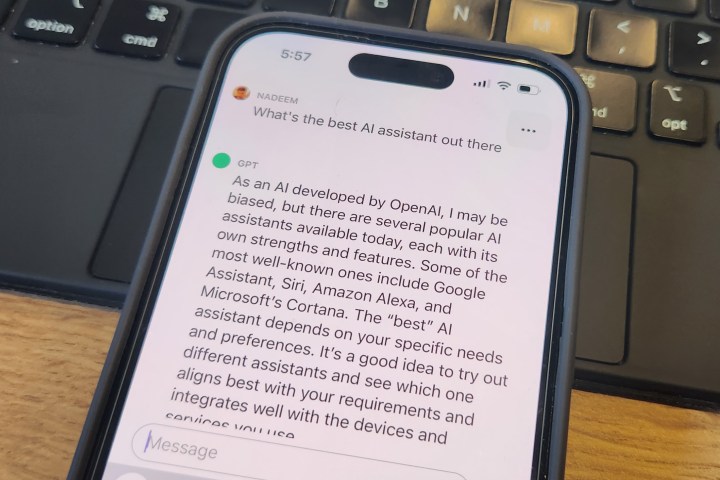 Nadeem Sarwar / Digital Trends
Nadeem Sarwar / Digital Trends
Alright, let’s not stray far into app integration territory and focus on Siri, the voice assistant. Right now, what it needs is improved conversation capabilities where it doesn’t sound frustratingly robotic. Giving it some AI chops where it can hold a nuanced conversation and return responses that are not merely web search redirects in Safari would do wonders.
One can argue that Google has stuffed too many features at the heart of Google Assistant — way more than a lot of users would ever derive any utility from. But at the same time, the feature disparity between Google Assistant and Siri is also absurdly lopsided. And I am not even touching on what Google’s Bard AI chatbot can pull off.
Looking at the situation from a contrarian perspective, the situation is actually easier for Apple because it doesn’t have to continuously iterate and improve an expansive suite of tools like Docs, Slides, PowerPoint, Excel, etc.
But at the same time, it makes it even more bewildering that with such a small slate of productivity software at its disposal, Apple has neither supercharged it with AI, nor has the company added any meaningful Siri integrations.
How does it look from the other side?
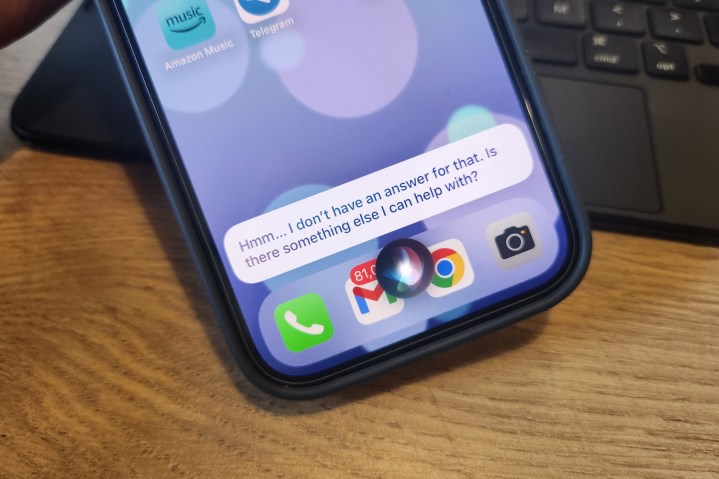 Nadeem Sarwar / Digital Trends
Nadeem Sarwar / Digital Trends
Musing about the current industry state of AI development, Microsoft co-founder Bill Gates recently said that whoever creates a killer personal assistant of the future will win the race, and this assistant could very well upend things for giants like Google Search and Amazon. Once again, Apple and Siri were absent from the conversation.
Google is so bullish that it reportedly dismantled the Google Assistant and took an all-hands-on-deck approach to improve Bard and other AI products. Say what you will, but AI advancements are finally happening, with consumer gadgets at the center of it all. We are still very much in the early days of this shift, but the products that have arrived so far have really made an impact in the day-to-day lives of millions.
What if Siri was indeed competing with the likes of Bing Chat, Bard, and ChatGPT? Or, at least, what if it tried to copy only a handful of their tricks and call it a day? It would still be quite some spectacle. But all that lives strictly in the realm of Siri possibilities.
Going by Apple’s current trajectory, it would take a while before it can perform a functional makeover and make its presence felt. Google became a butt of jokes after saying “AI” a few dozen times at its I/O 2023 conference in May. Apple’s sassy on-state executives didn’t say the word AI even once at WWDC 2023. Instead, Apple used a more technical derivative — machine learning — repetitively.
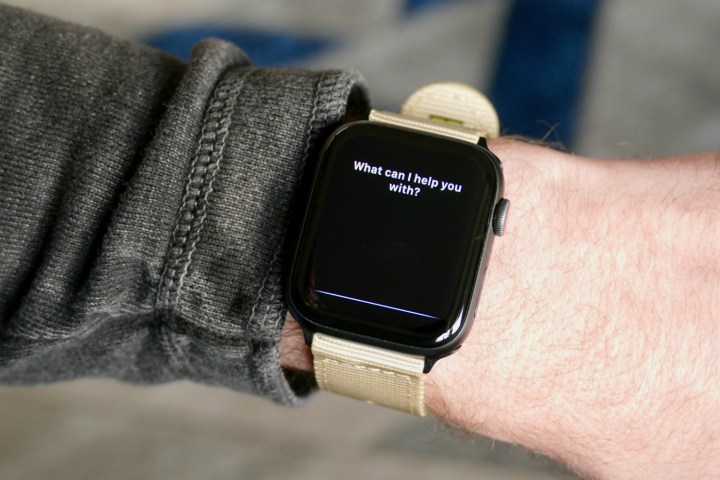 Andy Boxall/Digital Trends
Andy Boxall/Digital Trends
What Apple missed out on, Microsoft is pushing eagerly. Cortana has been finally laid to rest, but before it buried its Halo-inspired voice assistant, Microsoft came up with Bing Chat.
Drawing from the conversational chops of GPT-4, Bing Chat can crawl the web for you and find answers. It can also tailor its responses based on how formal or casual you want it to sound. It has a celebrity mode that makes it talk like any famous personality you can imagine. It can even generate images based on a few words of text.
Above all, it will be powering the Office suite soon, writing your emails, making PowerPoint slides, summarizing Teams meetings, and more. Google is not as advanced at similar endeavors, putting generative AI chops in nearly every single productivity tool in its Worksuite portfolio. Apple is conspicuously absent from the entire debate.
Apple’s Vision gazes elsewhere
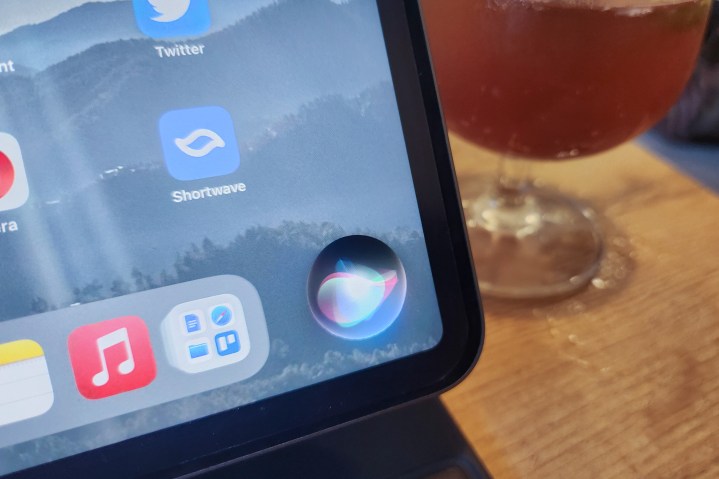 Nadeem Sarwar / Digital Trends
Nadeem Sarwar / Digital Trends
When OpenAI first popped up on the AI radar with its disruptive ChatGPT bot, it would have been sane to dismiss it at yet another grift. But flash adoption by the likes of Microsoft and Google — and in products that are used daily by hundreds of millions of users every single day — sent home the message that AI, especially the talkative and practically productive kind, is here to stay.
And that begs the question: Where is the world’s most valuable and innovative company in the AI game? And more importantly, when are we going to see Siri make the next big leap brimming with next-gen AI chops?
With the Vision Pro headset, Apple has made it clear that spatial computing is where it sees the market going. But that’s a revolution that will take a few years before it can truly become “the next iPhone moment” for XR wearable gear. Or at least, not until $3,500 becomes the mainstream price that millions are happy to pay for a headset.
But in the meantime, there’s a whole universe where hundreds of millions of iPhone, iPad, Apple Watch, and Mac users thrive, and they can really use some new Siri tricks to make their lives just a tad easier.
So far, the road ahead for Siri looks — for the lack of a better term — functionally barren and disappointingly laggard.
